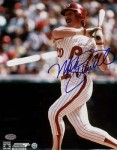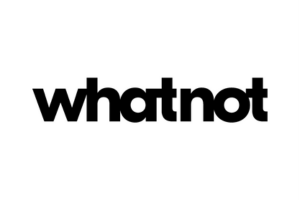
Hall of Famer Mike Schmidt Weighs in on Autograph Collecting
Its been said that the first three-quarters of the 20th Century were the golden age for collecting autographs. Back then it was still possible to get a signature from a famous athlete in person, without paying a fee for the privilege, and even feel a bit of a bond with the man holding the pen.
That time is long gone. Though the especially determined and fortunate may still be able to snag a signature in person, the autograph game is more commonly played in much more impersonal and expensive ways. Most often, collectors get their ink from licensed sports card products or by paying for a ticket and standing in line at a show.
The knee-jerk reaction to blame the athletes for the current state of affairs is understandable, but it's also an incomplete explanation. In an age where everything is a commodity, autographs have become big business. And since it's impossible to tell the earnest fans from the profiteers, it's only natural for the ones doing the signing to want their share of the financial pie.
Some sports stars do understand the inherent dilemma in the modern autograph market, and Mike Schmidt is one of them. The Hall of Fame third baseman and Philadelphia Phillies legend recently wrote a piece for the Associated Press lamenting the loss of innocence while also explaining an understandable reluctance to be taken advantage of by others.
Schmidt himself was a beneficiary of the previous era of autographs, as he explains in an anecdote about getting Jack Nicklaus, Arnold Palmer and Gary Player to sign for him on a plane as a teenager. A story like that would never happen in 2009, and Schmidt admits that's a shame.
At the same time, he also speaks up for athletes who are aware their signatures provide the value for items that are sold and resold, sometimes for large amounts of money. By working with the card companies and making show appearances, some of that money flows back to the signers, which only seems fair when examined from his point of view.
Never one to go out of his way to seek the limelight during his playing days, Schmidt also illuminates another advantage of the current way of doing things: it allows players to escape the constant attention from fans which has only grown over time. In a celebrity-obsessed culture, it's impossible to take increased demand out of the equation.
Schmidt's authority on the subject comes not only from his baseball credentials but also from his participation in today's hobby. He signs for card manufacturers and pops up on the show circuit. His fees at a Hall of Fame event last month in Cooperstown are pretty standard for a player of his stature, ranging from $80 for an autographed baseball to $100 for a cap, bat or jersey.
Those figures might seem shocking to the uninitiated, and they definitely price some interested parties out of the market. But consider that Steiner Sports sells an autographed Schmidt ball for $200 and MLB.com offers a signed bat for $500, and suddenly the larger picture becomes that much clearer.
It would be great for devoted fans, especially younger ones, if the clock could be turned back to allow them to get cheaper, more accessible autographs. Athletes would probably appreciate a return to the days without crushing 24/7 media pressure and people trying to make a buck off of their names too.
That's not happening, so everyone has to accept the semi-compromise that's evolved over the years. It may not make anyone 100 percent happy, but until someone dreams up a solution that does an even better job balancing all of the conflicting factors, it will have to suffice.
 | Making purchases through affiliate links can earn the site a commission |



























